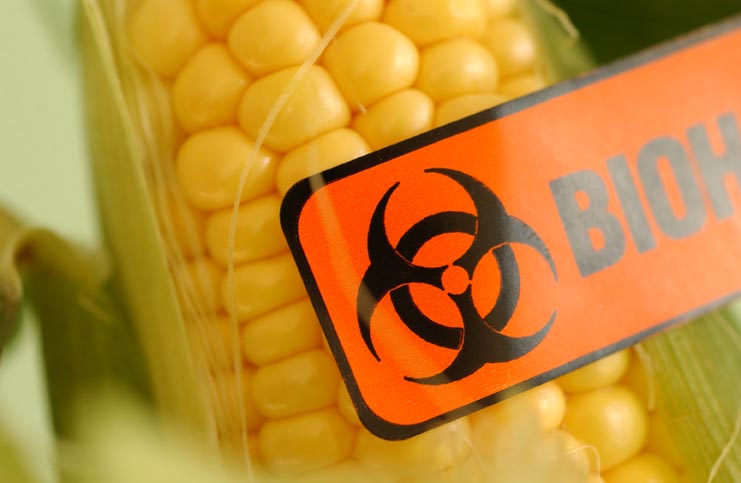By Timothy Wise
Bayer/Monsanto suffered another in a long string of setbacks in its battle to grow genetically modified (GM) corn in Mexico when the country’s highest court on October 13 refused to overturn a precautionary injunction restricting the cultivation of GM corn. In its unanimous decision, the court agreed with the citizen petitioners who sought the injunction in 2013 that cultivation of GM corn poses a credible threat to Mexico’s rich store of native corn biodiversity through uncontrolled cross-pollination.
The Demanda Colectiva, the citizen group that brought the original lawsuit, in a statement said that the unanimous decision strongly supports “the collective rights of peasant and indigenous communities and of the consumers of corn.”
The chemical and seed companies who sought to overturn the injunction, including Bayer-Monsanto, Syngenta, and Corteva (formerly Dow and DuPont), criticized the decision, saying that GM organisms (GMOs) “have not produced a single case of threat or risk to the environment.”
Seed companies on a losing streak
With the Supreme Court decision, the companies added to a losing streak that has included more than 100 rejected appeals seeking to overturn the GM corn injunction. Their biggest loss, however, may have been the withdrawal of support from the Mexican government.
Two previous administrations had approved permits for GM corn cultivation and sided with the companies in the legal fight against the injunction. President Andrés Manuel López Obrador, elected in 2018 with a strong mandate to revitalize Mexico’s rural economy, may have a cabinet that does not fully agree on GMOs, but the government filed a brief with the Supreme Court supporting the injunction.
The government signaled the coming shift in its position with a New Year’s Eve presidential decree last year banning the cultivation of GM corn and mandating the phasing out of GM corn imports as well as the use of glyphosate, the key ingredient in Bayer/Monsanto’s Roundup herbicide. The World Health Organization has determined glyphosate to be a probable human carcinogen. Bayer has set aside more than US$11 billion to settle tens of thousands of lawsuits by plaintiffs claiming that exposure to the herbicide causes Non-Hodgkin’s Lymphoma.
The companies have filed suits in Mexico to stop the decree, and they have appealed directly to the Biden Administration to treat Mexico’s actions as a violation of the US-Mexico-Canada Agreement, the slightly revised North American Free Trade Agreement. As Karen Hansen-Kuhn and I argued, the decree does not seem to violate the trade agreement, and in any case the Biden Administration should recognize Mexico’s right to legislate for the health and environment of its own citizens, not foreign chemical and seed companies.
In another blow to the companies in early October, Mexican regulators denied Bayer a permit for a shipment of a new GM corn variety, stating that the seeds were genetically modified to tolerate glyphosate, which they consider dangerous. They explicitly cited the precautionary principle, much to the ire of the company.
A long, spirited resistance
As I documented in my 2019 book, Eating Tomorrow, and in this collection of articles, the Demanda Colectiva’s latest legal victory is the product of a long and spirited campaign to defend Mexico’s unique heritage of native corn and the traditional intercropped milpa. Mexico’s biodiversity institute has identified more than 21,000 distinct varieties of native corn.
Their original 2013 petition, which still awaits a hearing in Mexican courts, argued that the Mexican constitution guarantees the right to a clean environment and that cross-pollination from GM corn threatens the integrity of native corn varieties, which should be considered an important part of that environment given the crop’s central place in the country’s landscapes, cultures, and cuisines. Such contamination is well documented in Mexico.
That is why the courts granted a precautionary injunction until the case could be heard. In upholding the injunction, lower courts agreed with the petitioners’ reasoning, writing in 2014, “The use and enjoyment of biodiversity is the right of present and future generations.”
The Supreme Court was less eloquent, perhaps, but equally clear. “There are well-founded indications of risk, so in the face of uncertainty and considering the possibility of serious and irreversible damage to the environment, this Chamber considers that in accordance with the precautionary principle the measure is correct,” wrote the Court.
That interpretation is now backed by the United Nations. On October 8, the U.N. Human Right Council formally recognized that having a clean, healthy, and sustainable environment is a human right.
In their statement about the Supreme Court ruling, the *Demanda Colectiva *was triumphant but wary. “This decision is crucial for the preservation of native maize and the milpa, but also for the beekeeping sector and for the bees themselves, as part of that biodiversity, which have been severely affected by the entry of GMOs such as soybeans and corn, as well as the use of pesticides such as glyphosate.“ Honey producers in the Yucatan have found their organic honey contaminated from GM pollen exposed to glyphosate.
“We still have a long way to go to achieve the definitive ban on transgenic corn in Mexico, an action that will guarantee the preservation and protection of native corn, the milpa, the rights of peasants to a healthy environment, and their related human rights,” they concluded.
This article originally appeared on Food Tank.





